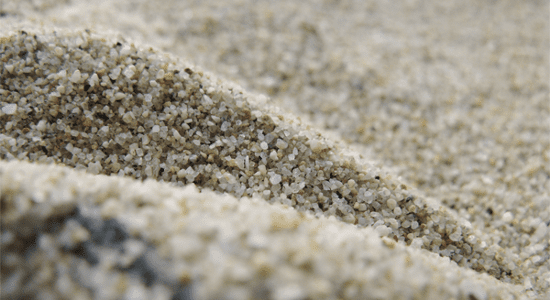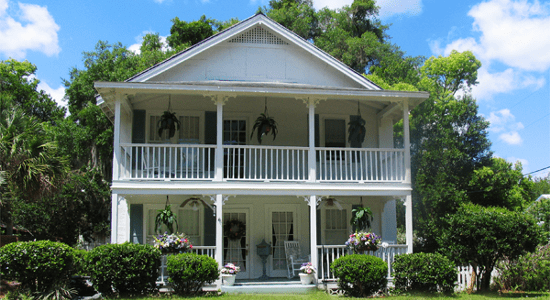After school, Christina would often accompany Fatima home and indulge in the treats prepared by her mother. Fatima’s mother, or Umm, which Christina learned meant mother, always welcomed Christina, calling her habibti, darling, like the others. In time, even Umm’s overpowering embraces lost their strangeness and Christina welcomed them, taking comfort in the warmth of her body and sweet smell.
Umm always spoke with an equal measure of gentleness in her tone and uncompromising firmness in her words. She did not venture out of the house much—or at least Christina rarely saw her do so—and it seemed that she had given her life to raising her children in the way of God, for in cooking, singing, reciting stories, and taking care of their needs, this seemed to be her purpose. Perhaps it is for this reason that she always fulfilled the banal chores of motherhood with such joy.
Fatima and her siblings never questioned Umm either. Yet, unlike Christina’s mother, she was strict, for she never let them out of her sight for long and insisted that they return home immediately from school. When Christina once asked Fatima about the need for these rules, Fatima claimed that Umm was only trying to protect them. Christina had no doubt that this was true, though Umm still seemed unnecessarily wary with Sharif, who had to come home straight after school, even though he was sixteen. On the whole, the children appeared not to mind these restraints, or at least they never let on that they did, though Christina was rather surprised that Fatima, who spoke with such boldness in school, never once questioned her mother.
Umm did not like her children watching television either. She claimed that it corrupted their minds and their time was better spent reading, and reading to her meant theQur’an, though she did grant that any form of reading was far better than watching theinfidel box, as she called it. Umm would often reprimand Karim, who was so enthralled by the images that flashed on the infidel box that he even ignored her entreaties to come and get his favourite treats. She never failed to come and turn it off. Karim always accepted this gesture in silence.
In the evenings when Fatima and Christina would do their homework together in Fatima’s room, Umm would call Karim and Sharif to her room for their daily suralesson. Christina would hear Umm’s voice through the walls reciting verses from theQur’an, which her sons would then repeat after her. Sharif was earnest and disciplined in his attempts, and he would sometimes spend an hour with her. Karim, on the other hand, was slow with these exercises, never managing to repeat the lines with any accuracy and Umm’s frustration would increase as time wore on. Umm always tried hard but eventually let him go.
On many evenings, the five of them would assemble around Umm as though they were chicks gathering around a mother hen. Christina could imagine no better place to be on those stormy autumn evenings with the leaves swirling on the sidewalks. Umm would sit on the couch and narrate stories from the Qur’an, or about the Prophet’s life. There were even times when they would enter the world of her childhood in Palestine.
“May Allah bring peace and happiness to all of you, my children, and to our people in their struggle,” Umm would say before commencing her stories. “It is a land of indescribable beauty, a land created by God’s hand for his beloved people.”
Umm’s voice was laced with longing, describing groves of oranges, lemons and olives, as far as the eye could see. When she was a child, Umm’s brother Hussein used to lift her up onto his shoulders so she could pick the oranges. Speaking his name, her voice grew sombre and her eyes clouded over, as if she were looking inward and what she saw made her sad. But it only took a moment for her eyes to clear.
“He would sometimes peel an orange for me, and we would sit and watch the land, the sun shining on the rolling fields, as though it were touched by a golden wand. The oranges looked like balls of fire in the darkness of the leaves. I tell you there was no taste like those oranges, as though they fell straight from the hands of God.”
Fatima looked at her brothers when Umm said this, smiling as though she could imagine the taste. Sometimes Karim would smack his lips and they would all burst into laughter. But Umm said that it was unlike anything they had ever tasted, and Christina would see the smile melt from Fatima’s face.
Umm spoke of the way the people lived off the land, the way they shared their profits with each other, and the thanks they always gave to Allah for his blessings. And so, to Christina, as to the others, it seemed that there was always peace and happiness in this Eden of theirs, untarnished by greed and vice.
“One day I will take you there, to our land. You must also come with us habibti,” she would say looking at Christina, and Christina would dream of this day as much as them, of visiting this land of unimaginable beauty and hope.
Abu Yasser was a hero in Umm’s village and Umm told them many stories about him.
“He was tall like you, Sharif,” said Umm. “With dark, brooding eyes and a charismatic smile. Everyone knew one day he’d achieved great feats.”
The best stories were the ones from Abu Yasser’s childhood. There was one in which Abu Yasser, having found two boys fighting in the village, made them stop and explain their side of the story. When he realized that the fight was over a trivial matter (as he had suspected), he made the taller and stronger boy give something to the slight one, saying that it was unfair of him to pick a fight with a disadvantaged adversary.
“And everyone listened to Abu Yasser,” Umm said. “There was truth and justice in his words.”
Umm even told them tales of how he would sometimes steal from one of the rich merchants in a nearby town and give the loot to one of the poorer families in the village. So Christina came to think of Abu Yasser as a daring Robin Hood of Palestine, for Umm said he always took it upon himself to fight for the oppressed and helpless, and that he died doing so.
Once Umm told them about the time she and her brother Hussein visited Abu Yasser’s grave.
“It was such a hot day,” she said. “That year was bad for our people, many of our crops had died, and you know we were very poor. But we bore our suffering with courage because it is said that Allah never gives more than one can bear.”
Umm adjusted herself on the couch and rubbed her feet together.
“The sun was shining, and everywhere there was, how to say, a white light, so bright I couldn’t see, and everything was either dead or dying. I was feeling a bit faint that day, but I begged Hussein to take me with him, so he carried me on his back all the way to the grave. It was a very long way, especially in that heat, so he told me jokes along the way and I teased him about all the stares he was getting from the girls in the village . . . then finally we came to Abu Yasser’s grave and I will never forget that vision. May Allah have mercy on him! There, in all that heat and dying we could see strands of wheat growing everywhere. I couldn’t even see the stone that marked Abu Yasser’s grave. There was so much wheat—like a blanket of gold. I remember Hussein kneeling down and weeping like a baby. I’d never seen him cry before. Then he thanked Allah for his greatness. I knew I’d never forget that day. I held Hussein’s hand when we walked back. When we were almost home, he said that today he had realized that there was no such thing as death, only life could grow from our spilt blood.”
Umm’s voice faded at that point. Karim tried to persuade Umm to tell more stories even if they were variations of the same ones, but Umm was firm in her refusal.
“There is tomorrow, rohi, my soul,” said Umm. “Insh’allah. God willing.”
Karim did not persist, though Christina could see the disappointment in his eyes.
*
[Ten years later]
Opa’s death cast a shadow as Christina left with her parents for the cottage. Max wanted to stay in the city to finish writing his book, but Gwen insisted that they go for at least a month. Max was silent the whole way up. When they reached the cottage, Christina went for a walk along the back roads. She tried not to think about all that had passed in the last few days. The hunting dogs the Wilsons had tied to their fence came running towards her but were thwarted by their chains. The Craggs waved as she walked by, but she wasn’t in the mood to stop and talk. Frank was burning dead leaves in a bonfire to keep the mosquitoes away. Celia and Frank had lived in the trailer beside their cottage for years. Frank had been renovating their place ever since Christina could remember: he had dug the foundation thrice over, shifted the rooms, and added a septic tank. Just when everyone thought he was done, he found some defect in the structure and started all over again. He reminded Christina of the French artist in one of Steinbeck’s books who spent years building and rebuilding his boat. He never finished because he feared the sea. Christina wondered what Frank feared.
Along the road she collected button raspberries and blackberries for her parents. When she returned she saw them talking by the deck. She walked down the path towards them, but stopped as she heard her father’s voice.
“It’s just like him to want the last laugh. Did he think of anyone but himself in leaving Chris that letter? ”
“We should have told her, Max.”
“We’ve tried to protect her all these years.”
“By hiding the truth? You haven’t faced the truth either. It was easier for you just to turn your back on him.”
“It’s because I faced the truth that I turned my back on him. And I let Christina see him, didn’t I? ”
“Only because your mom would’ve wanted it.”
“We wouldn’t be having this conversation if we’d never . . . ” Max stopped himself and turned away.
“If we’d never had a child? ”
“I’m not the one who wanted it, Gwen. I knew these questions would arise and I never had any faith to give my child. It was best to cut the line when we could, but I couldn’t bear to see you so unhappy.”
“Do you still regret it when you see how beautiful she is? ”
Christina turned and walked back to the cottage, not waiting to hear his response. She threw the berries in the waste bin. A breeze made the wind chimes tinkle. Putting the teakettle on the stove, Christina stood at the window watching the trees. Opa had asked to be buried at the Necropolis beside Oma with a feeding station for birds as his memorial. Yet Christina’s mind could not find rest in the sunlight or squirrels playing between the graves as they watched his coffin lowered into the ground. She had learnt to walk in that very graveyard; she remembered Max playing hide-and-seek with her between tombstones till it grew dark outside, carrying her home on his shoulders as she counted the graves.
Her mind turned to her other grandfather, Gwen’s father, the chemistry professor she had never known. She imagined a hunched figure in a parka carving ice from the lake every spring. He had wanted his ashes scattered here after he died. She thought of him out there somewhere mingling with the rocks, dead leaves, and brittle pine needles. If she wanted to find him again, she would have to search for him under her boot soles.
But there were other signs of him too. Christina had seen his pencil sketches randomly nailed to the walls throughout the cottage. One was of a path by the edge of a stream; another showed a silhouette of two fishermen standing on a canoe with their hoods drawn up. Her grandfather had a fondness for maps too, and there were laminated charts of cottage country pinned up by the bookcase. One of them looked like a dishrag shot with weeping holes. Salerno Lake had been called Devil’s Lake in the 1900s. No one knew when it had become Salerno or why it had ever been Devil’s Lake. There was still a Devil’s Gap Lake further up and a Miserable Lake; further north the lakes still held their indigenous names.
“The kettle’s boiling,” cried Gwen, coming in, the screen door banging behind her on unsteady hinges.
She turned off the stove and moved the kettle aside.
“Chris, could you help your father with the boathouse? He needs help fixing the windows and I’m too tired.”
Gwen disappeared inside the main room and returned a few minutes later with a roll of plastic sheeting and an industrial stapler.
“Here, take these down. I’ll make you a fresh cup of tea when you’re done,” she said.
Christina did not want to see him, but Gwen had already gone to her room to sleep. When she reached the boathouse she saw Max in his crumpled flannel shirt on the veranda upstairs, a bottle of cognac raised to his mouth. He put the bottle down on the desk and stared off at the lake, wiping his mouth and blonde beard with the back of his hand.
“Oh, there you are,” he said, with a half-smile as she went up the stairs.
They worked in silence. He told her to cut the plastic sheet into small squares for the cracked windowpanes overlooking the water and into two large panels for the screen door leading to the veranda. A passing motorboat sent waves towards them. She held the sheet against the doorframe as he stapled. There were crooked trails of rusty staples from previous attempts.
Christina noticed her father’s hand tremble.
“How many died while Opa watched? ” asked Christina.
Max was silent.
“Two or three? Ten? Twenty? Hundreds?? ” she persisted, after he missed a staple.
“Damn these staplers,” he cursed.
After another failed attempt, he opened it to find it empty. He put in another set.
“I don’t know the exact numbers,” he said, punching too many staples into the wood and mostly missing the plastic. “The numbers are irrelevant in a way. There must have been lots who died, but even one is too many.”
“When did you find out? ” she asked.
“Before you were born, even before I met your mother.”
“You allowed me to love him.”
He stopped and looked at her for a second and then back again at the sheet to be stapled.
“My mother was a good woman,” he said. “She made sense of things with her faith. She was compassionate; she believed he deserved your affection.”
Christina was silent.
“I don’t have any answers for you,” he continued. “I wish I did. I did what I thought was right when I found out. We brought you up as best we could with whatever values we could give you—but you need to find your own answers.”
Christina hated him for his uncertainty; he had raised her with nothing but questions.
“I’ll see you up at the cottage in a bit,” he said, when they were done.
She left him to his cognac and slammed the door behind her when she regained the cottage.
Later that evening Gwen moved down to the boathouse. She said she wanted to be closer to the water, but she ended up sleeping there on the metal bed every night for the rest of the summer. In the mornings when she awoke she walked up the path, past the cottage to the outhouse on the slope of the hill, throwing open the top half of the green door to watch the lake glinting between the trees. It was all the luxury she ever needed. Sometimes she would be there for an hour with a book at noon when the morning stench had cleared and it smelt of sweet pine again.
“The beavers had a party under the boathouse last night,” she said to Christina, when she came down to the deck. “I couldn’t sleep a wink.”
The beavers had gnawed their way through a poplar tree on the edge of the lake even though Max had wrapped the base with chicken wire. The log fell into the lake like a broken sentence. Gwen and Christina sat on the deckchairs with the sloping backs and stared at the water. The breeze scattered leaves onto the water and animal voices filled the air.
“I swear I could hear him typing through their laughter,” said Gwen.
“Who was typing? ” asked Christina.
“My father,” said Gwen. “He used to sit up late into the night typing his chemistry textbooks in there. We would look down from the cottage and see the boathouse lit up like a lantern between the trees.”
“Do you miss him? ”
“Sometimes.”
From where she sat, Christina could see the boathouse at the water’s edge in an alcove of trees.
“Once, a long time ago when you were still a baby, I almost left your father,” said Gwen. “Your Opa convinced me how important family was. I was trying to remember what he said this morning. He loved his family and he loved you.”
“I don’t want the love of a criminal.”
“Your father sees things that way too. He’s been absolute in his condemnation from the beginning. Of course, we never talked about any of this after we got married. I think things are less straightforward than he thinks. Sure there was a German resistance, but it was a small one mainly made of aristocrats. The others had a moral duty to resist, but the fact is that most of us are spineless cowards who look out for ourselves when things get tough. That doesn’t make us all heartless monsters either.”
“I can’t believe you’re defending him, Mom,” cried Christina. “It makes me sick to know he was my grandfather.”
“I’m not defending him. I just believe that sometimes we get caught up in history and the evil inherent within each of us is given a chance to reign.”
“But if we believe that history and evil are inexorable forces, how will we prevent such atrocities from happening again? ” Christina asked.
“That’s true, but as long as we think the real problem is the moral corruption of others, we’ll fail to examine ourselves. Before you judge Siegfried, ask yourself if you’re really certain you’d be any less weak.”
“Why did you want to leave Dad? ” Christina asked, after a long silence.
“I suppose his cynicism became unbearable. Every once in awhile I wanted to open the window and feel the sunlight on my face, not just peer into the darkness.”
They were silent for a moment. A bird sang in the treetops. Perhaps it was the hermit thrush. Christina couldn’t tell.
“I’ve been thinking of returning to India for some months,” said Gwen. “After a while this life makes you numb. I remember walking the cremation grounds in Banaras. The Hindus believe if you die there you will achieve immortality. I used to see children flying kites right next to a body being cremated. They seemed fearless. I want to understand what makes them that way.”
“Are you sure you’re not just running away? ”
Gwen laughed.
“Maybe I am, but we all need places to hide. Maybe I run away; your dad buries himself in his books and music, and supports himself on a crutch of cynicism. And you, where will you find your solace? ”
“I don’t know,” said Christina. “All I have are questions.”
“There’s beauty in a question,” said Gwen, getting up. “I think I’ll go out on the lake for a bit.”
Christina watched her till she disappeared in the yellow kayak around the bend of the lake. She remembered that until she was seven, her hiding place was the warm broom closet on the main landing of their house. Sometimes, she’d take a book in there, read with a torch, and fall asleep till her parents found her and made her come out. She could not explain to them that she felt safe in there, held. When she was older, she had built herself a tipi in the back garden to recreate that feeling; later, she only felt that sense of enclosure for a moment in the forest or when she wrote staring at a blank wall. The thought of endless spaces, deserts and ice fields without a horizon, were slightly frightening and bewildering to her.
A beaver created a pale crease swimming through the lake. Suddenly it slapped its tail on the water and dove under. Christina wondered where it would emerge again.
At the end of that summer Gwen left for India. She told them she did not know how long she would be gone and Max accepted her decision without a word of protest. In the spring, when Christina had finished her coursework, he himself left Toronto for two years of research in Germany, leaving Christina to the solitude of her dissertation; her carrel, her books, her thoughts.
They were each in search of their own answers.






